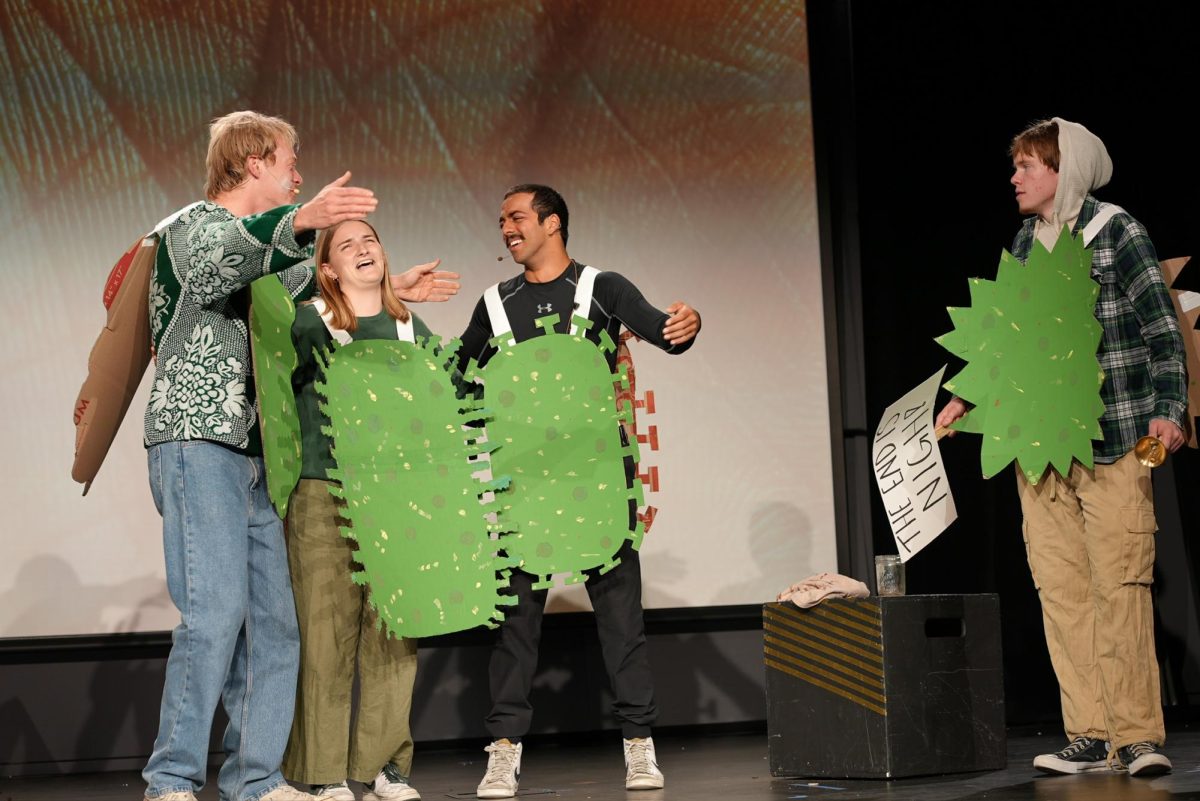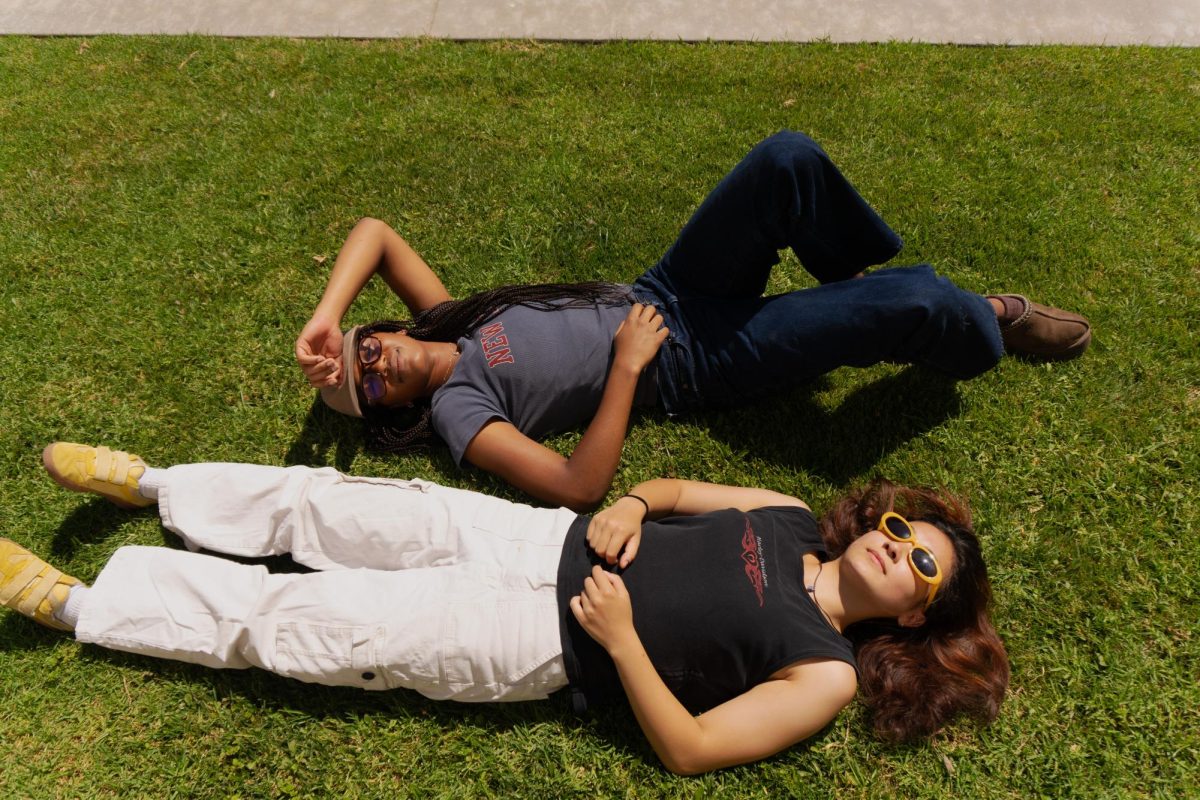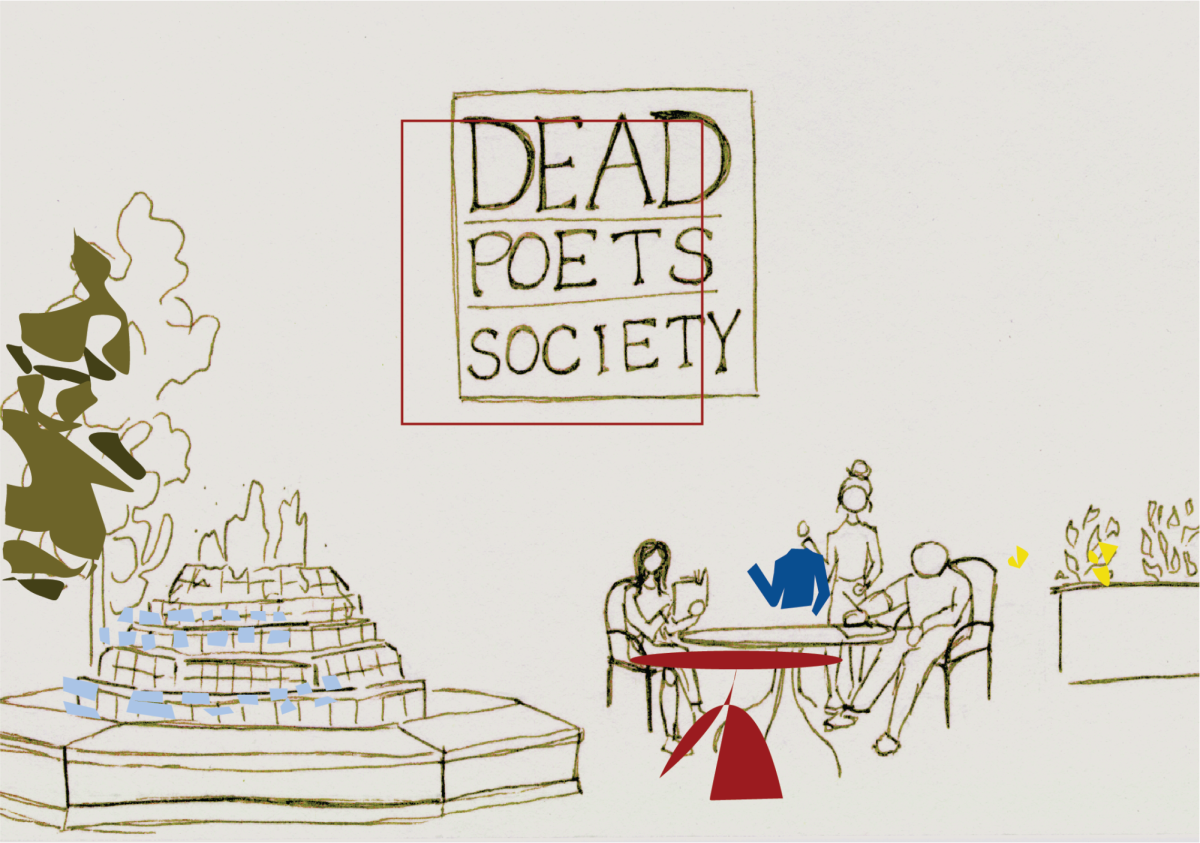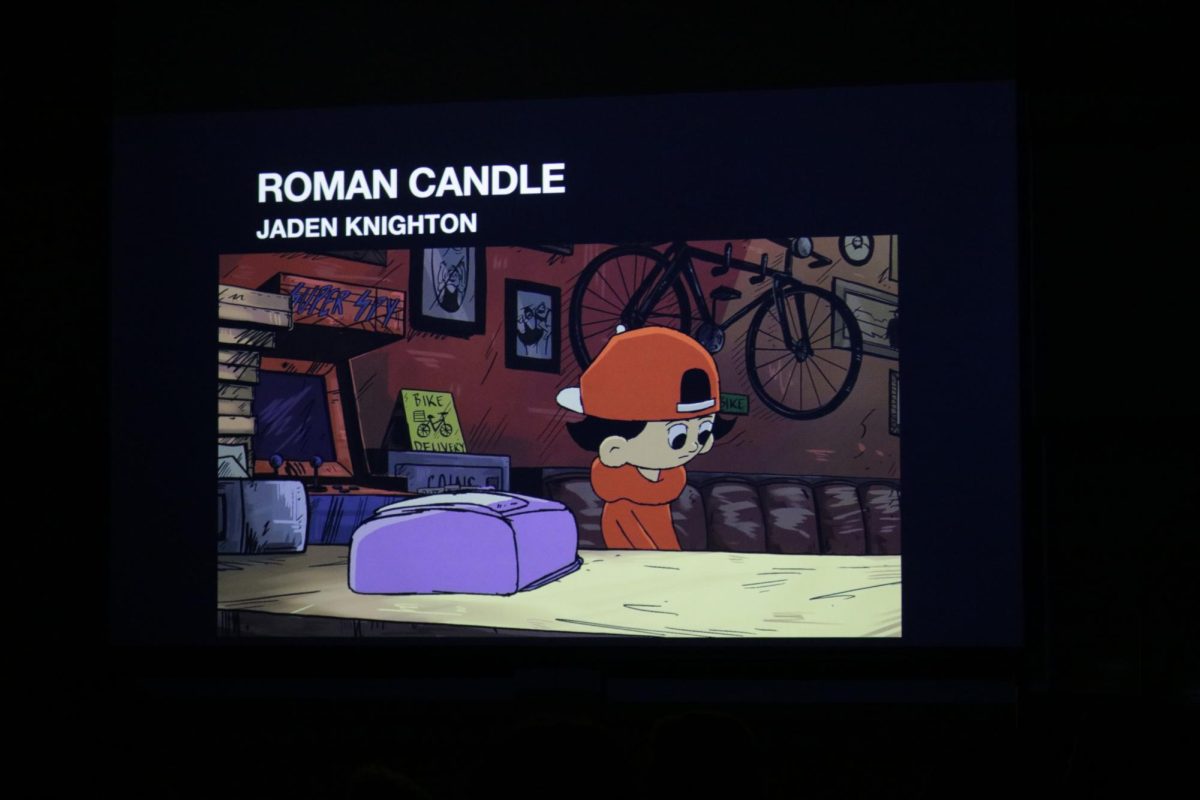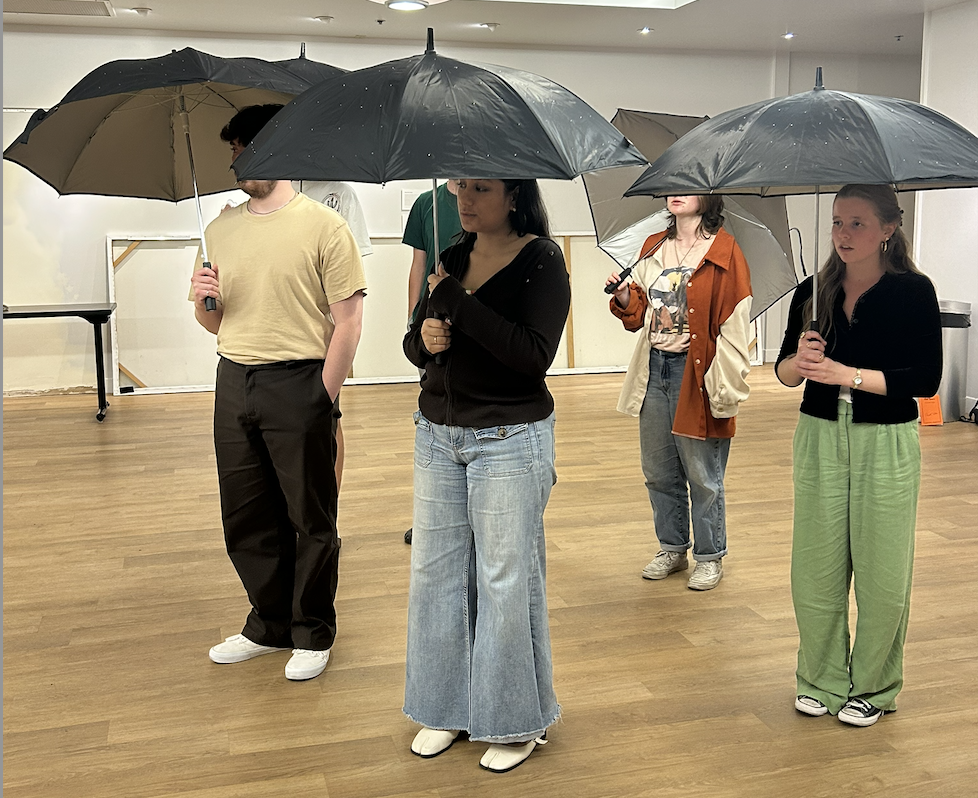LIVE FROM LOT-F
If you didn’t already know, Live from Lot-F is a sketch comedy show & club produced by students Elijah Van Gaasbeek, Bella Greer, and Justice Baker. The club is in its second year, approaching its third performance. But where exactly did this club come from, and what inspired that name? The initial concept was conceived in a conversation near the creek in front of Stewart and Hart Hall before being rudely (yet memorably) interrupted by some neighborhood kids. Van Gaasbeek and Greer tell the story like this:
“We were just chatting, having fun, and then I, like, mentioned something about wanting to start a Biola SNL, and Colette [Parsons] and Bella [said] ‘No way, we’ve been wanting to do that too!’ So both of us had been wanting to do that separately, and we were like, okay, let’s do it together. And then… we were chased by kids!” Van Gasbeek said.
“It was like out of an 80s movie,” said Greer. “They were yelling horrible things at us and throwing rocks, and we took off down the ditch, and Lot-F was born.”
Initially a joke made by Greer, the name Lot-F references the parking lot in which most CMA events take place underneath a signature white tent. Though the show never ended up taking place in Lot-F, the name remains a memory of the show’s early brainstorming.
The first show took place on Monday, Dec. 9, 2024, and showrunners Greer, Van Gaasbeek, and Colette Parsons were overwhelmed by the response. Mayers Auditorium was at maximum capacity with people flooding the aisles and floors.
“We were joking about it just being our family and friends,” recalled VanGasbeek. “And then we had to turn people away, and people were sitting on the floors!”
None of the cast expected the show to take off the way it did, and the positive feedback they received following the first performance encouraged them to polish and elevate it for the next performance. Some personal inspirations behind the showrunners’ interest in the comedic world include Bill Hader in “Barry,” Melissa McCarthy in “Gilmore Girls,” and Ben Stiller’s direction of “Severance.”
COMEDY ON A CHRISTIAN CAMPUS
Fundamentally, humor is subjective, so how has Live from Lot-F morphed around the cultural values of a place like Biola? Where does honoring God with our speech play into a sketch comedy show? Greer, Van Gaasbeek, and Baker have established a system for filtering out unnecessary and foul speech.
“We jokingly call it ‘No No Yucky,’ and it’s just all the things that we can all kind of agree that we don’t want to include,” said Greer. “But it is hard, [and] I think the thing that we’ve continuously wrestled with is how do you run a good show but also a good club… and I think that comedy, like tragedy, plays off of like insults or discomfort or pain, so I don’t know how you make jokes without any of those things but I think it has a clarifying effect and I think that’s why it matters… we’re still trying to figure that out.”
“The best comedy doesn’t punch down,” said Baker. “I think there are ways to talk about difficult things and hard things through comedy that you can’t talk about in other genres that open people up to conversations that they wouldn’t have been open to before; comedy is an art form… It does take work and time, and it’s a skill that you develop over time.”
The Lot-F showrunners are especially concerned with the quality of their show, making active attempts to present the most polished production. They all acknowledge the unique position that sketch has to spark conversation around controversial events and attempt to approach those with respect.
THE CAST
Auditions for Live from Lot-F’s third performance were fairly recent. Over the course of two nights, 40 students participated in writer’s rooms and mock sketches. The final cast was 16 in total, including the showrunners.
So what sets these people apart? What went on at auditions? Van Gaasbeek and Baker opened up about the importance of diversity within their cast. Not necessarily ethnic or gender diversity, but diversity of viewpoints, majors, and life experience.
“We really value having that kind of fresh voice and having different experiences of life that they’re bringing to the table and the writer’s room,” said Baker.
Additionally, they were looking for people who can work together and collaborate. That attribute manifests in respect for diverging ideas and the ability to add on to existing content. The showrunners are very pleased with their casting for the upcoming show and hope to combine the best of the first and second performances to present a striking third.
“Combining the spirit of the first show with the polish of the second show—great things from both that we’re combining and hoping to perfect,” said Van Gasbeek.
At this point in pre-production, the group meets for two hours every Monday night to conceptualize scripts, collaborate and rewrite, and participate in mock sketches. Though they would not share their marketing theme for this year, the show runners seemed very excited.
THE FUTURE OF LOT-F
A substantial number of the Lot-F cast members, as well as the showrunners, are seniors this year, so what does that mean for the future of Lot-F? Baker felt very passionate about sharing this with the students of Biola.
“I think something we do care about is that the club is a long-lasting club and that next year there still is a space for people to do sketch comedy, and this can be an outlet for writers to actually see their stuff made,” he said. “I am excited to see where the club goes next year. If someone’s reading this that is interested in the club, I would encourage them to audition next year, even if you didn’t make it in this year, audition next year!”
“Or just come talk to us, it’s fun to meet other writers,” said Greer.
It is the call of the underclassman to take initiative in prolonging the life of Lot-F. If sketch comedy interests you in the slightest, make sure to see Lot-F’s third performance and audition next year.

